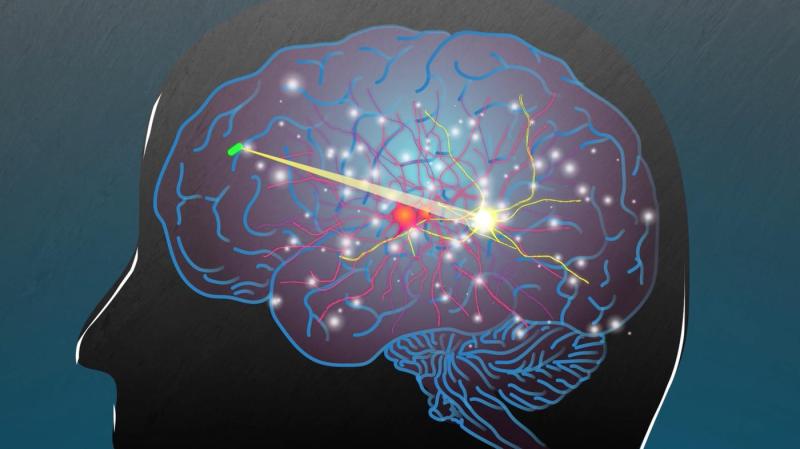Arguably the biggest hurdle to implanted electronics is in the battery. A modern mobile phone can run for a day or two without a charge, but that only needs to fit into a pocket and were its battery to enter a dangerous state it can be quickly removed from the pocket. Implantable electronics are not so easy to toss on the floor. If the danger of explosion or poison isn’t enough, batteries for implantables and ingestibles are just too big.
Researchers at MIT are working on a new technology which could move the power source outside of the body and use a wireless power transfer system to energize things inside the body. RFID implants are already tried and tested, but they also seem to be the precursor to this technology. The new implants receive multiple signals from an array of antennas, but it is not until a couple of the antennas peak simultaneously that the device can harvest enough power to activate. With a handful of antennas all supplying power, this happens regularly enough to power a device 0.1m below the skin while the antenna array is 1m from the patient. Multiple implants can use those radio waves at the same time.
The limitations of these devices will become apparent, but they could be used for releasing drugs at prescribed times, sensing body chemistry, or giving signals to the body. At this point, just being able to get the devices to turn on so far under flesh is pretty amazing.
Recently, we asked what you thought of the future of implanted technology and the comment section of that article is a treasure trove of opinions. Maybe this changes your mind or solidifies your opinion.
















I considered adding a point about dispensing that kind of medication at the press of a button, but I’m no shill. It still makes me chuckle.
https://www.washingtonpost.com/national/health-science/how-the-body-could-power-pacemakers-and-other-implantable-devices/2018/06/08/16d287b0-5559-11e8-a551-5b648abe29ef_story.html?noredirect=on
Holy Hems Washington post employs retards.
“a pacemaker needs just 50 millionths of a watt to last for seven years, a hearing aid needs a thousandth of a watt for five days, a smartphone requires one watt for five hours.”
Holy Hems Washington post employs retards.
“a pacemaker needs just 50 millionths of a watt to last for seven years, a hearing aid needs a thousandth of a watt for five days, a smartphone requires one watt for five hours.”
My wife: “Time to get up, Dear. Here are your jumper cables and coffee.”
I pigs body can corrode CVD-SiO2 (glass) quite fast. We tested a blood sugar sensor with “semiconductor style passivation” and were quiet impressed about this…
Ever since my ex mother in law was struck by lightning whilst asleep next to the telephone, she now has the power to illuminate small LEDs by touching them with her finger. She still keeps the telephone close by and receives regular top ups to her super powers.
0.1m under the skin? That’s 10 cm deep….
That was an odd way to phrase it.
At least he didn’t say “0.0001 km”.
:D
Metres are the SI unit, it’s not so odd for a scientist to use them.
that’s not the issue here..
Only in the US somone would think so but I think a scientist would use cm 10-² or mm 10-³
I will confess that metric isn’t my first language. My whole life has been spent in the US. What is the convention when writing?
My first thought was that it was a win when I didn’t try to convert the distances to inches.
When the majority of the comments are about my use of meters instead of technology which could conceivably put a Bluetooth headset under the skin, I am probably the one who needs to wise up.
No hard rules. I’m 186cm high, or 1m 86cm high. But you wouldn’t say that someone is 0.95m high. In your article 10cm under the skin would look good, because human body parts are generally smaller than 1m, but 1m distance to the antenna is perfectly fine.
10cm are about 4 inches. Technically it IS under the skin, but a bit deep.
Maybe it is supposed to be 0.1cm (0.04″), which would be JUST under the skin.
Yeah at 10cm you are deep into muscle, or fat, depending on your lifestyle.
Oh wait, I forgot something; unless it’s a brain implant, in which case you are deep into brain tissue.
Yes, brains. GI tract would be another likely place.
“Recently, we asked what you thought of the future of implanted technology and the comment section of that article is a treasure trove of opinions. Maybe this changes your mind or solidifies your opinion.”
Not sure how this would change anybody’s mind to be honest.
Perhaps because people would say ‘Oh great now instead of just tracking and tagging me they can also control me with applied doses of chemicals’?